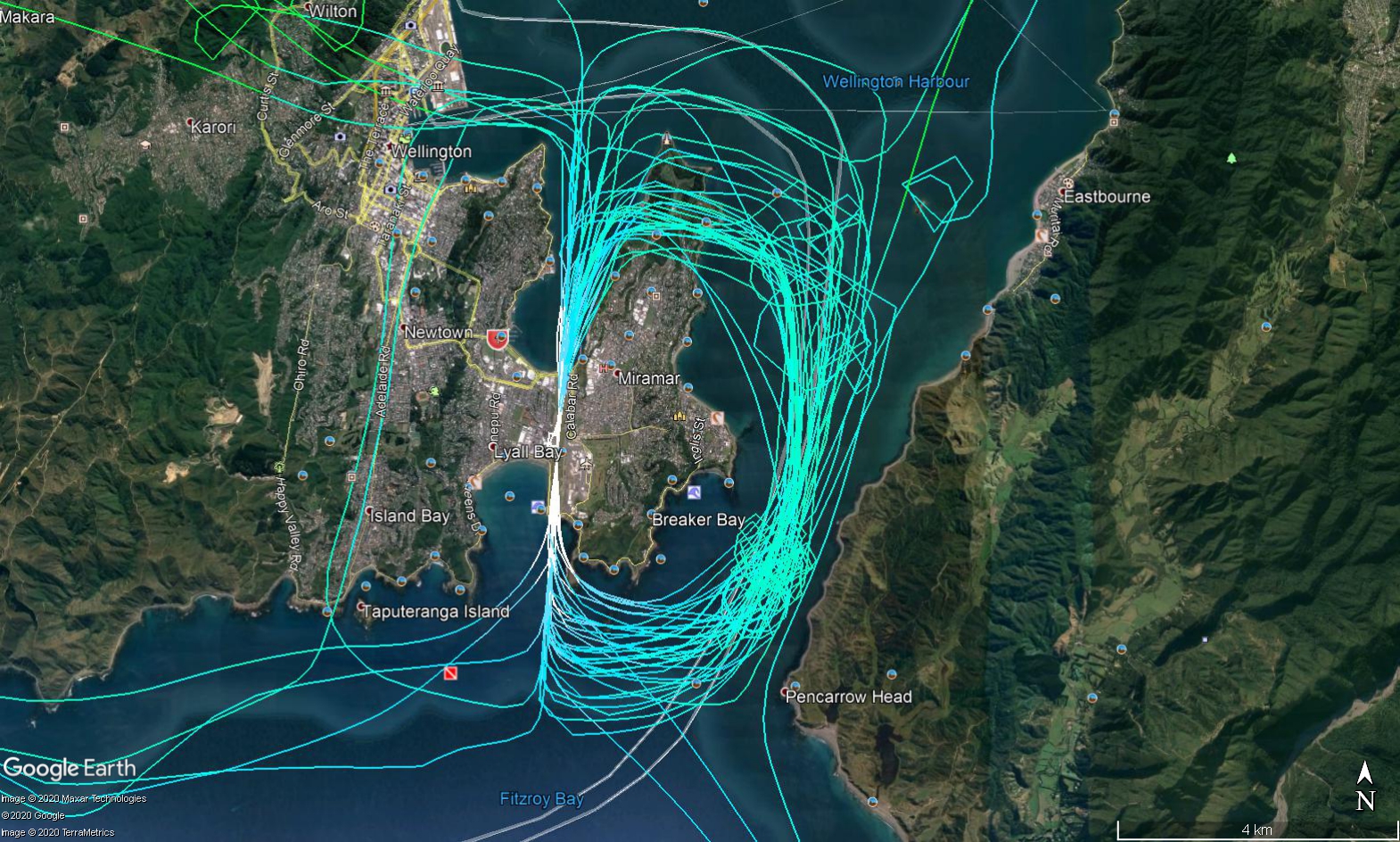
Benoit - 2 Juin 2020
Avec cet article, je me suis attaqué au problème des avions de plaisance qui tournent autour de la péninsule. C'est un problème qui nous concerne directement, vivant à la verticale de la ligne, mais il me semble qu'un monde avec moins de bruit de moteurs est une aspiration louable de manière générale. L'article a été lancé en même temps qu'un compte Twitter, le site internet noflyzone.org.nz et la pétition.
Wellington on a balmy day: countless people enjoying being in the sun. If you can’t hear the bird song or cicadas, it’s because the sound of the waves has drowned out their music for a moment. Kids are running and laughing. Up the hill, residents look after their gardens or simply chill, with friends and family. Paradise, right? Well yes. But …..
…. some residential areas and popular beaches are also within reach of the noise of recreational aircraft, whose play patch is above the Eastern Harbour. Up there, on balmy days, light planes circle for hours, making the most of the good weather. As they are flying, the neighbourhood is plagued by almost-constant engine noise, very similar to a neighbour deciding to mow his lawn as soon as conditions are good.
A group of Miramar residents, known as Noflyzone, has assembled evidence using publicly available GPS traces from the planes. Here is a trace of some of the planes circling on a Sunday:
aircraft over harbour
In this picture, not all the planes were captured because the necessary receiver (known as ADS-B) will not be mandatory for all aircraft in the Wellington area before mid-2021. The smaller circles are small aircraft waiting to get green-lit by the air traffic control tower, which prioritises commercial flights landing at the airport.
As the light plane flights are recreational, this means the noise is not necessary. Unlike commercial aircraft, the Wellington Aero Club does not provide a service to the region and the noise has a negative impact on residential areas that clubs are flying over: Because they fly low and slow, it’s a constant background noise – impacting an area that includes the Miramar peninsula and stretches across to Eastbourne. Tens of thousands of people have their soundscape hijacked.
Eager to discuss this issue directly with the Aero Club, a meeting was arranged to see how the noise nuisance could be reduced. The Club claimed it is operating within the rules set by the Civil Aviation Authority and a lasagne of legal frameworks: the Resource Management Act, and Regional and City Council by-laws.
The Club also raised a precedent: as a “resident” of the airport for 90 years (it recently celebrated its anniversary), the choice made by residents to live within its operational area meant they had to expect some level of noise from the airport. Inherited privilege, perhaps, with the idea some residents (the Club) are more entitled than others (everyone else.). The idea of introducing electric planes, significantly quieter, was discussed, but wasn’t deemed operationally appropriate at present.
The Wellington City Council and the Regional Council have confirmed that the legal framework is solely focused on the noise limit – that cannot be exceeded in any rolling 90-day period – from the take-off and landing of aircraft. Asked to intervene, the City Council replied it couldn’t do anything.
Noflyzone, however, is challenging the City Council’s apparent inability (or unwillingness) to act. It has issued a statement to the Council reminding it of its duty to act on behalf of the community and has launched a petition to gather support. The Council has some legal tools it could leverage: amending the District Plan, publishing a by-law, etc. Noflyzone is asking for a complete ban on residential fly-overs and a mechanism to ensure that light aircraft can’t circle around the peninsula. There is plenty of space south of Wellington where the planes could practice without being a nuisance for residents.
During lockdown, many acknowledged how much they enjoyed the lack of engine noise. As exasperation is building again, a better balance should be reached between residents’ considerations and everyone’s right to enjoy our beautiful city. With wellbeing, liveability and climate change in mind, it makes sense.
Benoit, le 2 Juin 2020